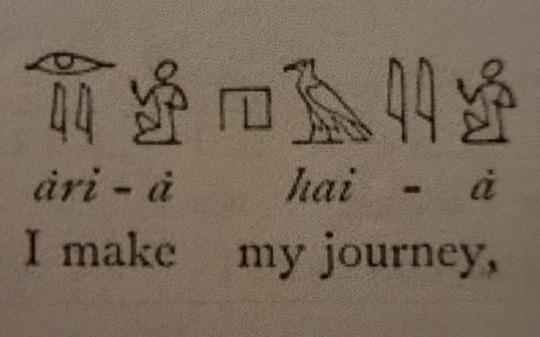#north africa
Text
"In one of Africa’s last great wildernesses, a remarkable thing has happened—the scimitar-horned oryx, once declared extinct in the wild, is now classified only as endangered.
It’s the first time the International Union for the Conservation of Nature (IUCN), the world’s largest conservation organization, has ever moved a species on its Red List from ‘Extinct in the Wild’ to ‘Endangered.’
The recovery was down to the conservation work of zoos around the world, but also from game breeders in the Texas hill country, who kept the oryx alive while the governments of Abu Dhabi and Chad worked together on a reintroduction program.
Chad... ranks second-lowest on the UN Development Index. Nevertheless, it is within this North African country that can be found the Ouadi Rimé-Ouadi Achim Faunal Reserve, a piece of protected desert and savannah the size of Scotland—around 30,000 square miles, or 10 times the size of Yellowstone.
At a workshop in Chad’s capital of N’Djamena, in 2012, Environment Abu Dhabi, the government of Chad, the Sahara Conservation Fund, and the Zoological Society of London, all secured the support of local landowners and nomadic herders for the reintroduction of the scimitar-horned oryx to the reserve.
Environment Abu Dhabi started the project, assembling captive animals from zoos and private collections the world over to ensure genetic diversity. In March 2016, the first 21 animals from this “world herd” were released over time into a fenced-off part of the reserve where they could acclimatize. Ranging over 30 miles, one female gave birth—the first oryx born into its once-native habitat in over three decades.
In late January 2017, 14 more animals were flown to the reserve in Chad from Abu Dhabi.
In 2022, the rewilded species was officially assessed by the IUCN’s Red List, and determined them to be just ‘Endangered,’ and not ‘Critically Endangered,’ with a population of between 140 and 160 individuals that was increasing, not decreasing.
It’s a tremendous achievement of international scientific and governmental collaboration and a sign that zoological efforts to breed endangered and even extinct animals in captivity can truly work if suitable habitat remains for them to return to."
-via Good News Network, December 13, 2023
#chad#abu dhabi#north africa#rewilding#endangered species#conservation#zoology#conservation biology#oryx#good news#hope#texas#big game#animals#endangered#environmentalism#environmental science#zoo#zoos#zoo animals
24K notes
·
View notes
Text






The Sudanese American Physicians Association (SAPA) is appealing for donations, especially in the lead up to Ramadan.
#sudan#north africa#east africa#signal boost#mutual aid#fundraiser#middle east#horn of africa#ramadan
17K notes
·
View notes
Text







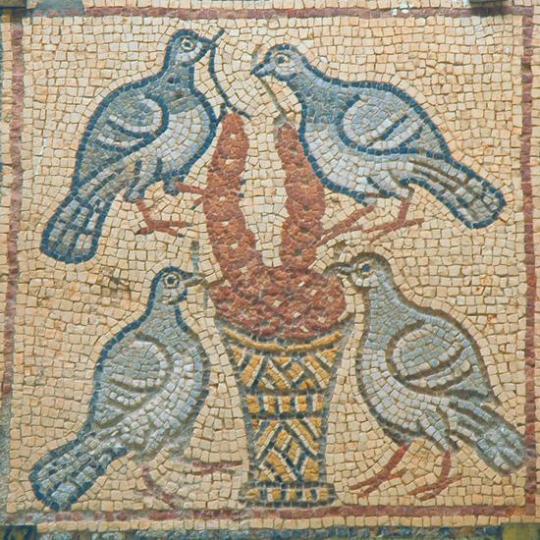
birds from the Theodorias, East Church mosaics in the Qasr Libya museum, ca. 540 CE, via livius.org.
#mosaics#byzantine art#also one uhm. large lizard. there's also a lizard#on which that duck is standing#libya#north africa
3K notes
·
View notes
Text
i had shared what is happening in sudan on a long facebook post last night, but it virtually received almost little to no engagement or shares from the nearly 600 “friends” i have on the site.
this morning, my great-aunt was shot by the soldiers fighting for power, and God forbid, i lose more of my family members before eid this friday.
please read below to understand what is happening and how you can help my country. i hope the tumblr community can show more kindness than the lack of support and advocacy i’ve seen elsewhere.
يا رب اجعل هذا البلد آمناً 🇸🇩
the lack of awareness and advocacy from the African, Arab, and Muslim diaspora and the human rights community has been painful.
while Western media has done little to no coverage of the ongoing conflict in the capital city of my motherland, Sudan, it appears that the rest of the world also partakes in normalizing crimes and violence against SWANA people.
violence and war hurting the SWANA region are NOT ordinary occurrences — no one, regardless of race, creed, ethnicity, religion, and gender, should experience the unprecedented amount of violence that harms my two living grandmothers, aunts and uncles, and baby cousins who live in Khartoum.
your decision to ignore reading or educating and discussing with others about what is likely to be a civil war is complicity in viewing SWANA people as individuals who regularly experience conflict and are undeserving of help.
the silence is damaging, and it is up to us as privileged members of the diaspora (or individuals living in the Western world committed to human rights) to support the people of my country and their dream for a stable, democratically elected government.
what is happening in Sudan is a fight that started on April 15 between two competing forces for power — the Sudanese Army and the Rapid Support Forces (RSF) — neither groups are representative of the needs of our people. The Sudan Army is loyal to the dictator, Omar Al-Bashir, and the RSF is responsible for the genocide in Darfur.
with both power struggles backed by different Arab and Gulf nations, the two parties have been fighting for power for the last few years. While they worked together to try and end the people’s revolution, they lost. however, they are now in a constant power play of who will get to rule the nation.
this all means that war is NOT a reflection of my country — violence does not represent the SWANA people. Sudan is a nation of beautiful culture, strong women, intellectual and influential Islamic scholars, poets, and youth at the front lines of the revolution. we are a people committed to a region of peace for ourselves and the rest of the Ummah.
my family and the rest of Sudan’s innocent civilians are at the most risk, with many currently without drinking water, food to eat, electricity, and complete blockage to any mosques during the final nights of Ramadan, our holiest month of the year.
i ask that you please keep Sudan and our people in your prayers — donate to the Sudan Red Crescent or a mutual aid GoFund Me, email your representatives if you live in a country that can put pressure on either competing force of power, discuss this with your family and friends, and please do not forget to think about SWANA people — our brothers and sisters in Syria, Yemen, Lebanon, and many others need our love and support.
الردة_مستحيلة ✊🏾
#KeepEyesOnSudan
#lama makes a monologue#tw: war#tw: death#tw: violence#tw: gun mention#KeepEyesOnSudan#keep eyes on sudan#sudan coup#SudanCoup#sudan#sudan crisis#SWANA#MENA#north africa#middle east#current events#news#war#violence#long reads#long post#Sudan_Update#sudan update
5K notes
·
View notes
Text
🇲🇦🇵🇸 Demonstration in Casablanca, Morocco, opposes the ongoing war in Gaza, reflecting widespread solidarity with the Palestinian cause.
#morocco#north africa#sahara#palestine#gazaunderattack#gaza genocide#gaza strip#free gaza#gaza#rafah crossing#rafah border#tel aviv#israel#news update#human rights#war news#genocide#antisemitism#jerusalem
912 notes
·
View notes
Text

👀 Mediterranean solidarity ✊
#that person is clearly Mediterranean but if they aren’t also Greek I will eat my hat#Mediterranean#Greece#funny#south Europe#north Africa#random
955 notes
·
View notes
Text

El Jem Amphitheater / Tunisia (by Andre Alexander)
571 notes
·
View notes
Text
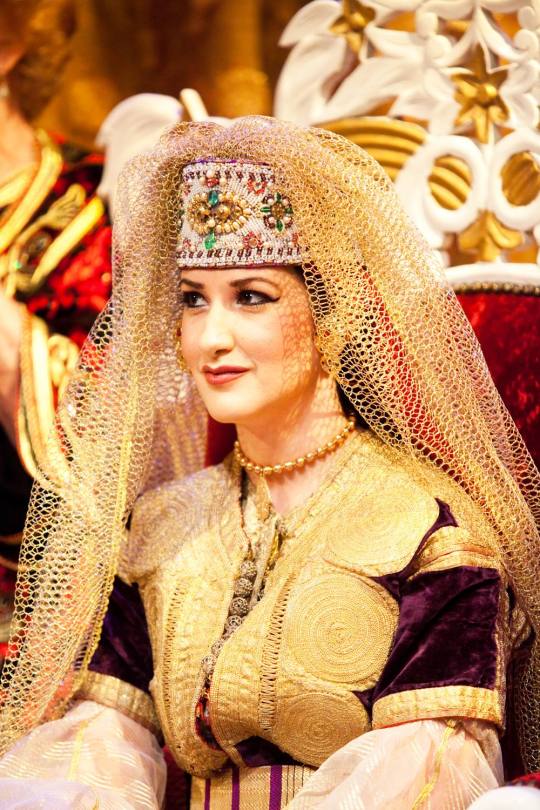
Moroccan Jewish woman, from Morocco, by American Sephardi Association
#moroccan jewish#jewish#morocco#north africa#africa#folk clothing#traditional clothing#traditional fashion#cultural clothing
684 notes
·
View notes
Text
Donate to help

#help with money#d0nations#gofundme#north africa#libya#arab#weather#weather news#storm#storm daniel#9/11#september 2023#crises#weather crises
1K notes
·
View notes
Text

Dar Glaoui.
Fès, 2023.
#photographers on tumblr#original photographers#street photography#black and white#analog#film photography#travel#analogue#b&w#street#vintage#faded af#faded grandeur#grandeur#architecture#morocoo#fez#medina#tiles#north africa
1K notes
·
View notes
Note
Arabs are not native to North Africa, that's like saying white people are native to South America or South America. They're all there because of colonialism.
Except there’s tons of studies proving that the “Arabs” of North Africa are not descendants of Arabs but Arabized natives.
Very few Arab tribes settled in North Africa and the process of arabization was way more cultural than demographic. For example in a 2017 study that used Tunisia to represent North Africa they concluded that we were 88% North Africans/Imazighen, 2% from Western and Central Africa, 4% Arabs and 5% Europeans.
So Arabs as a whole are not native to North Africa but the people living there and calling themselves “Arabs” are native not colonizers.
You can totally condemn the arabization but claiming that Arabized natives are colonizers is stupid.
Lastly as I always say as an Algerian our grandparents fought for a FREE ALGERIA. For an ALGERIAN ALGERIA. They didn’t fight for an Arab Algeria or an Amazigh Algeria. So I don’t give a flying fuck if people are Arabized or not. We’re Algerians that’s it.
#ask#North Africa#arabization#same old discourse#it often comes from people who never opened a book and don’t know the difference between Arabs and people who have been Arabized.
425 notes
·
View notes
Text
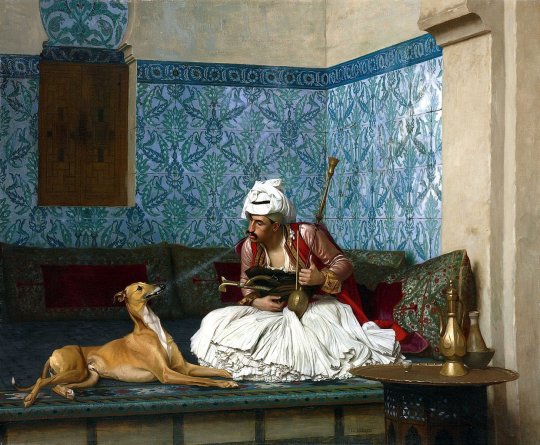
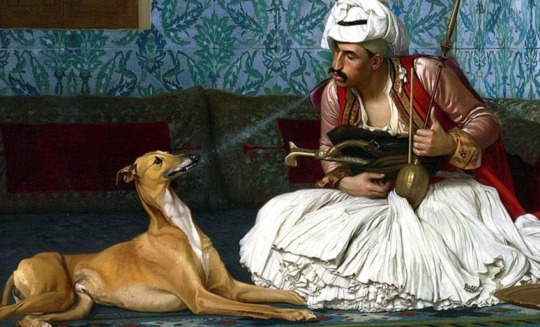
Arnaut Blowing Smoke at the Nose of His Dog, Jean-Léon Gérôme, 1882.
(Or as I like to call it, Man Engages in the Age Old Tradition of Annoying Your Dog)
#art#jean léon gérôme#academicism#historical painting#orientalism#north africa#egypt#middle east#albania#neoclassicism#txt
2K notes
·
View notes
Text
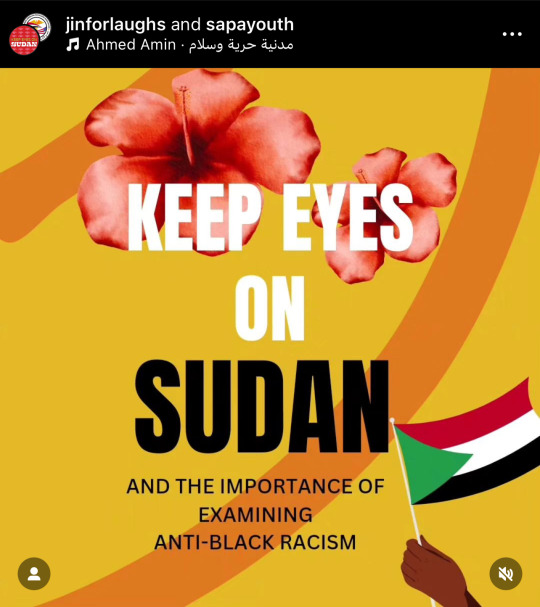
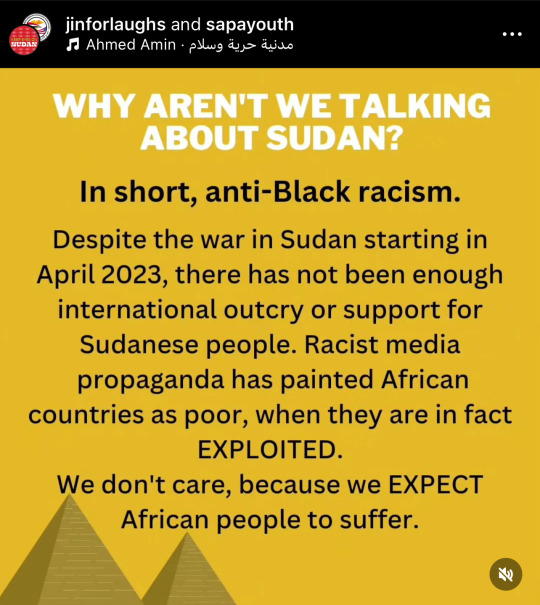
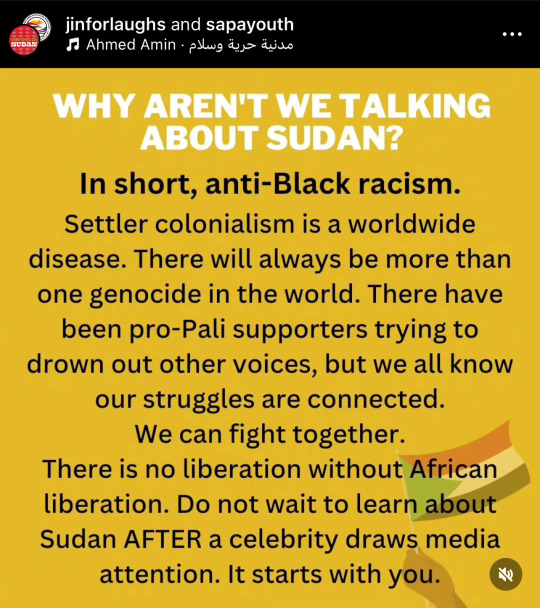

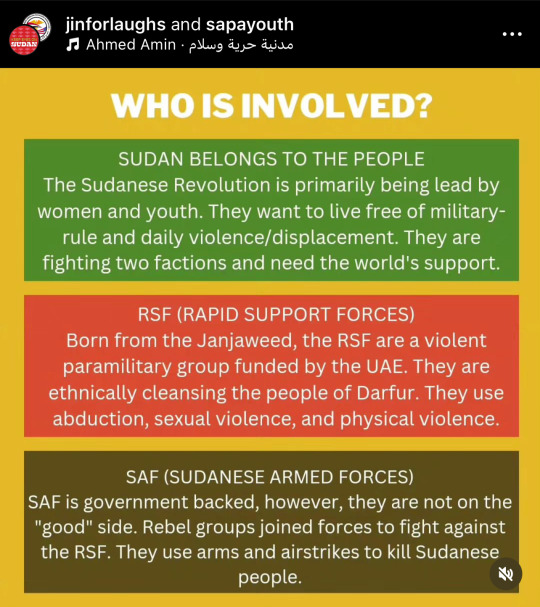



via jinforlaughs and sapayouth on Instagram
3K notes
·
View notes
Photo
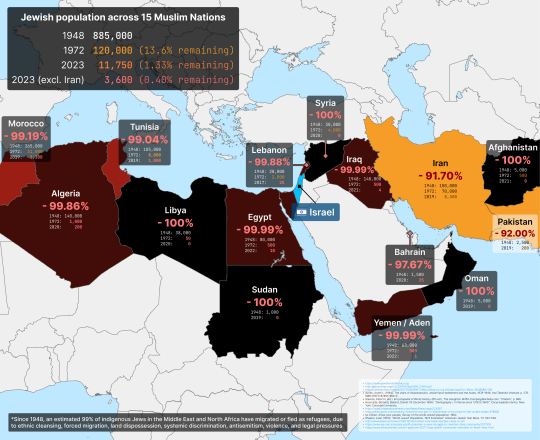
The rapid decline of indigenous Jews in Arab / Muslim nations since 1948
445 notes
·
View notes
Text
Characters reconnecting with their ancestral cultures in an interplanetary setting
@pixiedustandpetrichor asked:
Hi! I am writing a novel with three main female characters in an interplanetary setting. They grow up as orphans in an Irish-coded country and as children are mostly exposed to solely that culture, but they leave after becoming adults.
Character A is Tuareg-coded, B Mongolian-coded, and C is Germanic-coded. It isn’t central to the story, but I would like them to get in touch with/learn more about their ancestral cultures, especially in terms of religion. A does this by actually visiting the planet her parents came from, but B and C do not.
What can I do to depict their relationships with said cultures and their journey to reconnect with them? Would it be realistic for each of them to have different mixed feelings about participating in these cultures and for them to retain some sense of belonging to the culture they grew up in as well? Thank you for your time.
Hello, asker! WWC doesn’t have Tuareg or Mongol mods at the moment, so we're not able to speak to the specifics of cultural and religious reconnection for these particular groups. Still, I want to take this opportunity to provide some general context and elements to consider when writing Tuareg-coded characters, or other characters from groups that have experienced colonization in the real world. My fellow mods will then share thoughts about cultural reconnection in general and with respect to Germanic heritage in particular.
Drawing inspiration from groups that have experienced colonization
As you’re probably aware, the Tuareg are an ethnic group indigenous to North Africa. As with many indigenous groups, they have experienced colonization multiple times over the course of their history. Colonization often leads to the loss or erasure of certain aspects of culture as the colonized people are pressured to conform to the culture of the dominant group. In many cases, it’s near impossible to say what the ancestral culture of a colonized group was prior to colonization.
When coding a fictional culture based on a group that was colonized in the real world, it's important to ask questions about:
Which aspects of culture you're portraying
Where these aspects come from
Whether you're ready to tackle their implications for the world you're building
It’s not necessarily wrong to use elements of coding that draw from cultural aspects influenced by colonization. As I said, it can be very difficult, even impossible, to portray a “pure” culture as it would have been had colonization not occurred–because we simply can’t know what that alternate history would look like, and because so much has been lost or intentionally suppressed that the gaps in our knowledge are too wide to breach. But it’s important to be aware of where these cultural elements are coming from.
Where is your coding coming from and what are the implications?
For example, while the Tuareg today are majoritarily Muslim, this was not the case prior to the Arab conquest of North Africa. Some elements of Tuareg culture today, such as tea ceremonies, are derived from the influence of Arab and Muslim culture and likely did not exist prior to the 20th century. As you’re developing the culture of the Tuareg-coded group in your fictional setting, you have to decide whether to include these elements. There is no right answer–it will depend on what you’re trying to do and why.
Is your setting in our far future, in which case we can assume your Tuareg-coded group is distantly related to today’s Tuareg?
In that case, they will probably have kept many cultural aspects their ancestors acquired through their interactions with other cultures around them–including cultural groups that colonized them. They may–let’s build hopeful worlds!–have reclaimed aspects of their ancestral culture they’d been forced to abandon due to colonization. They may also have acquired new aspects of culture over time. This can be very fun to explore if you have the time and space to do so.
I would recommend speaking with Tuareg people to get a better grasp of how they see their culture evolving over the next however many centuries or millennia, what they wish to see and what seems realistic to them.
Alternatively, maybe your setting is a secondary world unrelated to ours and you only want to draw inspiration from the real-world Tuareg, not represent them exactly. In that case, you need to decide which period of history you’re drawing from, as Tuareg culture is different today from what it was 50 years ago, and different still from 200 years ago or 1000 years ago. You’ll need to research the historical period you’re choosing in order to figure out what was happening at that time and what the cultural influences were. If it’s pre-colonial, you’ll probably want to avoid including cultural elements influenced by colonization from groups that arrived later on.
Finally, if the time period you’re drawing from is post-colonial:
Are you planning to account for the effects of colonization on Tuareg culture?
Will you have an in-world equivalent for the colonization that occurred in real life?
For example, will the Tuareg-coded characters in your world be from a nomadic culture that was forced to become sedentary over the years and lost much of their traditions due to colonial pressure to conform?
Where did this pressure come from in your world–is it different from what happened in ours? If so, how different? And what are the consequences?
Writing about colonization can be quite the baggage to bring into a fictional setting. I’m not saying it can’t be done, but it will certainly require sensitivity and care in portraying it.
In summary: think it through
I’m not saying all this to discourage you, but to point out some of the considerations at play when drawing inspiration from a real-life culture that has experienced colonization. Similar challenges arise for coding based on any other indigenous group in the world.
My advice to you, then, is to first sit down and decide where and when in history your coding is coming from, and what you’re trying to achieve with it. This will help you figure out:
which elements of contemporary Tuareg culture are pertinent to include
How much your coding will be influenced by the Tuareg’s real-life history
To what extent that will inform the rest of the world you’re creating
This, in turn, may help in deciding how to portray your character’s reconnection journey.
Again, I am not Tuareg and this is by no means meant to be an exhaustive list of considerations for writing Tuareg-coded characters, only a few places to start.
If any Tuareg or Amazigh readers would like to chime in with suggestions of their own, please do. As always, please make sure your comments adhere to the WWC code of conduct.
- Niki
Pulling from diaspora and TRA narratives of cultural reconnection
Marika here: This ask plotline could also pull directly from diaspora and TRA narratives of cultural reconnection. Many diaspora and TRA cultural reconnection stories are, in effect, about navigating the difficult process of resuscitating, or renewing ties to culture using limited resources in environments that often lack necessary cultural infrastructure or scaffolding.
See this question here to the Japanese team for suggestions of how to handle such a storyline in a similar sci-fi setting.
More reading: Japanese-coded girl from future
-Marika
Reconnecting with German heritage
Hi, it’s Shira. I’m not sure whether German-Jewish counts as Germanic for the purposes of your post but since German Jews were more assimilated than other Ashkies, Germanness does feel real and relevant to my life (especially because my father worked there for approximately the last decade of his life.) NOTE: when I see “Germanic” vs German I think of cultures from 1500 years ago, not 100-200 years ago, so I can’t help you there, but I’d be surprised as a reader if a character focused on that for reconnection to the exclusion of the 19th century etc.
People in the United States specifically, reconnecting with German heritage, often lean into Bayerischer/Bavarian kitsch, I’ve noticed. Personally, though, what I find most relevant is:
1. The food (although I’ve come to learn that what I grew up eating was closer to veal/chicken scallopini than actual schnitzel because it was drenched in lemon, but I do like the other foods like the potato salad and sweet and sour red cabbage etc.) Your character could try making one of these “ancestral” foods as a way to reconnect?
2. The classical music, because I’m a second generation professional musician – if character C plays an instrument, leaning into that might be meaningful (Beethoven, Bach, Brahms, Mendelssohn, Clara Schumann and her husband Robert, etc.)
3. The nature, especially specifics that I enjoyed during my time there – personally, I loved the bright pink flowers all over the chestnut trees, but there are a lot of choices especially because of the Alps. If C is an artist maybe they can sketch something Germany-related from old photographs they found on the Space Internet?
I think it is VERY realistic for the characters to remain connected to the culture in which they were raised, by the way, whether or not they have positive feelings about it. Culture isn’t an inherited trait. Sure, if they want to completely walk away, they can, but I bet there are still ways it will creep back in without them realizing it simply because it’s really hard to have universal knowledge of the origins of all our quirks. Plus, not everyone feels alienated from their raised-culture just because they’re genetically something else.
P.S. There is also Oktoberfest, which I don’t really get into but is a thing, and beer, which is another point of German cultural pride.
German gentiles, weigh in – y’all have your own stuff, I know! OH YEAH so for German Christians, Christmas “markets” are a whole thing. That’s worth looking up.
–S
What do you mean by Germanic?
Hello it’s Sci! I had to study German history for my historical fantasy novel set in the late 18th century Holy Roman Empire. I am not sure what is meant by Germanic as that can encompass a variety of things.
Germanic people: from the Classical Period of Roman Empire and early Middle Ages. Similar to Mod Shira, I unfortunately can’t help very much here.
The Germanosphere: regions that spoke German, which includes modern day Germany, Austria/Hungary, Switzerland, Lichtenstein, Belgium, and Luxembourg. I generally define this as the regions captured in the Hapsburg Empire along with Switzerland usually encompassing “Central Europe.”
Modern German national identity (i.e. German): post Napoleon and the Congress of Vienna (> 1815) only including the territory of modern day Germany.*
I ask this because modern German national identity is surprisingly recent since Germany only popped up in 1871 under Otto von Bismarck. Previously, Germany was divided into smaller states and city states as a very decentralized region under the German Confederation and before that, the Holy Roman Empire. Depending on the era, you can see different conflicts and divides. During the early days of the Protestant Reformation started by Martin Luther, the northern and southern German territories generally split along Protestant-Catholic lines. The 18th century saw Austria and Prussia as the foci of global power who warred against each other even though both were part of the Holy Roman Empire.
Other states and city-states like Baden-Wurttemberg or Saxony sometimes had power but it was typically more localized compared to Austria. Post-WW2, you saw the split of Germany into West Germany run under capitalism and East Germany run under communism as a satellite Soviet state leading to more modern cultural divides. Due to heavy decentralization historically, each region had its own character with religious and cultural divides.
Assuming that the Germanic character is not from the classical period or early Middle Ages but not from the 19th century either, you can include your character reconnecting to classical folklore like that of Krampus (if they’re Christian), German literature and music like the works of Johann Wolfgang von Goethe or Mozart, or German philosophy like Immanuel Kant.
*A major wrinkle: German royals and nobility married into other states and nations frequently with Britain and Russia being notable examples. In Britain, the House of Hanover took over after the Stuart House died without clear direct heirs. When Queen Victoria married the German prince Albert, they celebrated Christmas with a tree and brought the German tradition of a Christmas tree to Britain and the British Empire. Only during World War I did the royal family’s house of Hanover name change from House of Saxe-Coburg and Gotha to the more “English-sounding” Windsor. As a result, the German cultural influence may be even more widespread than we think.
However, without more specific descriptors of what Germanic means in the context of your story, it can be difficult to determine which aspects of German culture your character could reconnect to.
-Mod Sci
#culture#cultural disconnect#cultural reconnect#race coding#ethnic coding#German#Mongol#Tuareg#setting#science fiction#Jewish#Colonialism#History#North Africa#Arab#Muslim#history
337 notes
·
View notes
